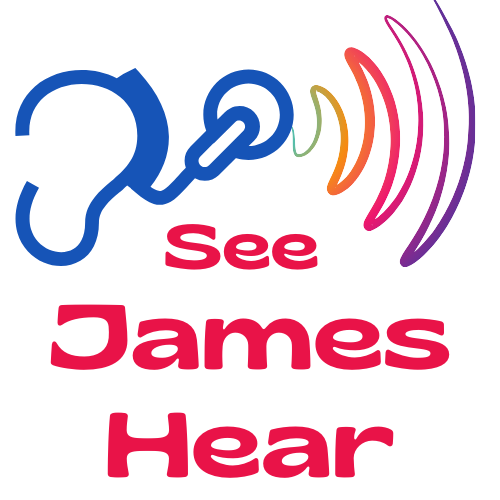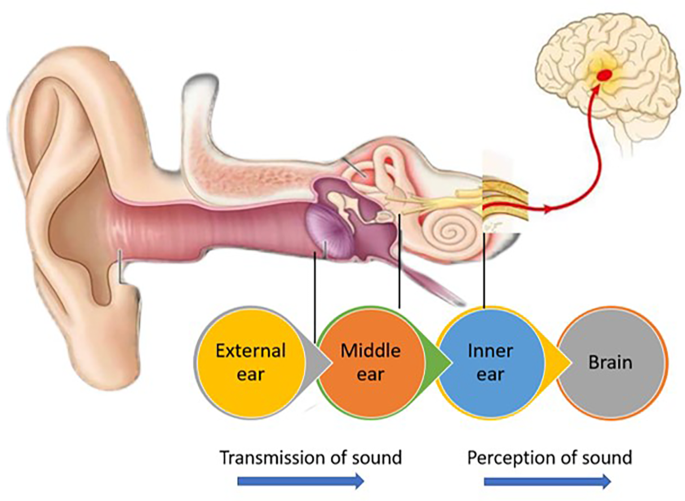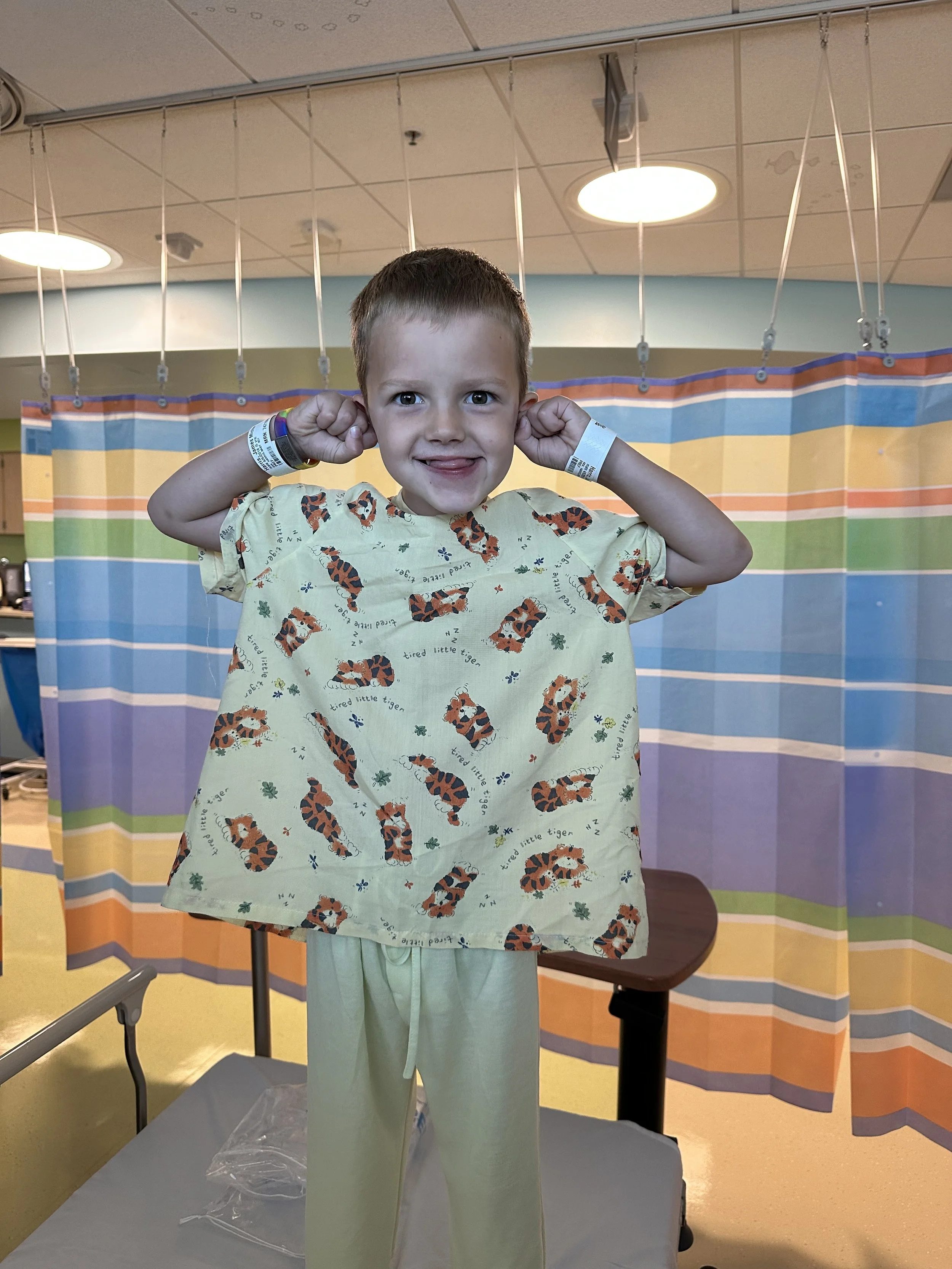auditory neuropathy
Auditory Neuropathy Spectrum Disorder (ANSD) is a tricky little disorder that can be described as a short-circuit between the ear and the brain.
The ear’s ability to hear sounds acoustically remains in tact, but when the sound stimulates the auditory nerve, connection is poor, leading to sound distortion.
The experience of auditory neuropathy varies from person to person, from mild to profound, and the causes of it are varied. In addition to sound distortion, it also causes hearing loss. Some of born with it, some develop it as a result of genetics or trauma.
While not particularly common, ANSD accounts for up to 15% of hearing loss cases.
Curious what it’s like to have auditory neuropathy? Check on the link below to hear how it sounds!
James’s experience with auditory Neuropathy
James developed auditory neuropathy later in life. Given his history of ear infections, it’s difficult to pinpoint exactly when he began to experience symptoms.
We think he began to experience mild neuropathy late in his 3rd year. He couldn’t hear me call to him in places where there was a lot of background noise. He was delayed in his speech for his age, but as he turned 4 and the months rolled on, I began to use sign language to talk to him, just to make it easier.
He became quieter and quieter. He struggled to understand what we said. The distortion was getting worse, and when he had a hearing test at age 5, he was completely deaf.
James, almost 4 years old, with a mild speech delay
James, age 5. We had already started using sign language to communicate with him.
The Good news.
Did you know the brain has an auditory development window?
Between the ages of 0-3, the brain is like a sponge for sound. The auditory cortex has to be stimulated by language during this time in order to develop. If not given access to language and sound by age 5, the window for language development will close.
Because James developed auditory neuropathy after he learned how to talk, it was possible for him to regain full access to language again.
When it comes to auditory neuropathy, hearing aids are typically ineffective. Hearing aids are meant to amplify sound. In the case of a person with ANSD, that sound is already coming in sounding like static. I most cases, according to our audiologist, the fix for auditory neuropathy is cochlear implants.
However, after receiving his diagnosis of ANSD, James was immediately fitted for hearing aids. The goal was to keep his auditory nerve stimulated while waiting to see if he was a candidate for cochlear implants.


